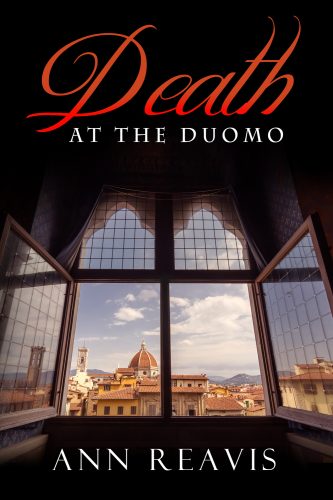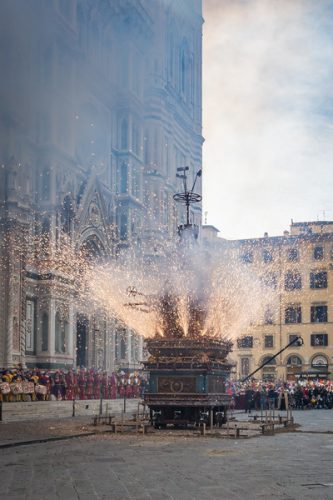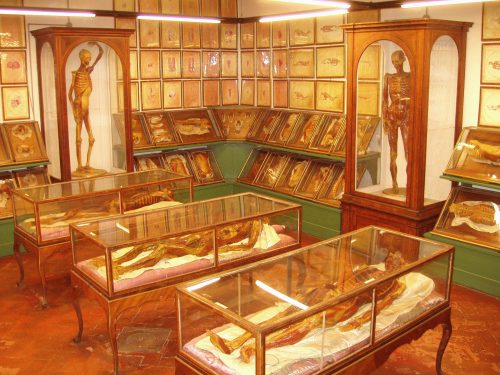Death at the Duomo is the first book, just released, in a new series of mystery/thrillers set in Florence, Italy. The Renaissance City’s fictional murder rate is about to rise, requiring the pairing a young Florentine detective, Caterina Falcone, half American, half Italian, with Max Turner, an agent from the American Embassy. The first novel begins with an explosion outside the Duomo on a festival day.

(Most long-time readers of this website know that the author of Death at the Duomo and Tuscan Traveler are one in the same. So this is the semi-strange situation of a self-interview to announce the book’s launch.)
Where did you get the premise for Death at the Duomo?
I love mysteries of all kinds, but especially those set in countries not my own. My favorites are by Donna Leon, Fred Vargas, Jason Goodwin, Daniel Silva and Joseph Kanon. After I had lived in Florence for a few years, I kept discovering places or events that I thought would be perfect for a murder. One was the exhibit of anatomical waxes at the La Specola Museum (the site used in the upcoming Caterina Falcone mystery) and another was Scoppio del Carro (literally, the Explosion of the Cart), the event at the beginning of the first book. With the colorful history of Florence there are unending possibilities for intriguing plots.

Do you prefer to write a novel or a non-fiction book?
I started Tuscan Traveler to keep my writing “up to snuff”. The website provided the basis for my first books, Italian Food Rules and Italian Life Rules, as well as giving me bits of information for my touring clients. I found, however, that it was more fun to incorporate the scenes from Florentine life, information about Tuscan food, and tidbits from historical Florence into a novel. So I gave Caterina Falcone a father who is a chef and restaurant owner. I learned that FBI agents are stationed at most US embassies, but have restrictions placed on how they operate in foreign countries, and Max Turner came to life. I especially enjoy exploring the experiences, good and bad, of foreigners when they encounter the Italian food and life rules, so each of the mysteries will involve tourists and expats in Florence and Tuscany.

What was the best part about being a writer in Italy?
No. Others have written much better books than I could, ranging from the more standard “under the Tuscan sun” narratives to innovative memoirs, such as Dianne Hale’s two books on language and Mona Lisa.
What are your favorite Italian-theme books?
I have a great group of writing friends who meet two times a year in Matera, a fascinating town in the Basilicata region. In the spring a small group meets for a brainstorming session. Death at the Duomo was born there. In the fall the Women’s Fiction Festival takes place. The second year I went the speakers included experts in forensics, cyber-crime and investigations of international crimes. The third or fourth edition concentrated on food writing. Recent years have been rich with information about indie publishing. Every year, literary agents and editors from major publishing companies are available for pitches from authors and staff panels on what’s new in the world of publishing.
Are you going to write a memoir about your sixteen years in Italy?
Besides my own, I would pick any book by Donna Leon, The Tigress of Forli by Elizabeth Lev, any book by Beppe Severgnini, The Venus Fixers by Ilaria Dagnini Brey, any book by Conor Fitzgerald and Medici Money by Tim Parks.
